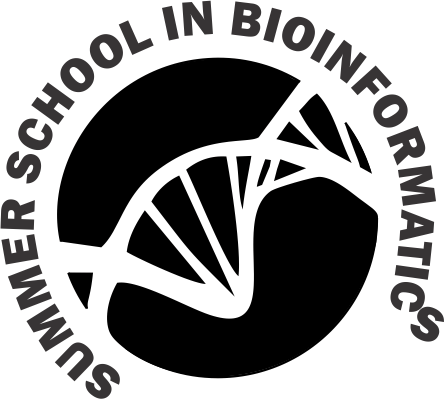Summer school in bioinformatics 2022 Program
Part 1: - Comparative Genomics.
Lecturer: prof. dr. Mikael Lenz Strube (DTU, Lyngby, Denmark)
The overall teaching aims of this module is to create competence in the students in terms of independently perform comparative analysis on bacterial genomes on the Linux command line.
Specifically, we will:
Download all genomes of either Bacillus subtilis, Pseudomonas fluorescens or Phaeobacter piscinae
Annotate the genetic content of these genomes
Profile the prophage content of these genomes
Profile the secondary metabolism of these genomes
Build a whole-genome phylogeny of the genomes
Infer the linkage between data-driven analysis and fundamental biology
The successful student will
Have a working knowledge of the Linux command line
Be able to use suggested command line tools
Investigate the bioinformatic literature to find further tools relevant for the biological questions
Infer the biological relevance of the genetic content in bacteria
Discuss the implications of phylogeny, genetic content and potential phenotype
Day 1
Introduction to the command line, the conda package manager and the bash scripting language. Downloading and annotating.
9:00 – 9:15 Introduction and course overview
9:15 – 10:00: Interactive lecture [Le1]: setting up the command line (prior Linux install is expected)
10:00 – 12:00 Linux exercises (Ex1) – navigating, copying and loops
12:00 – 13:00: Lunch
13:00 – 14:00: Lecture [Le2]: Basic genome assembly and what we can download.
14:00 – 15:00: Genome download & overview – how & what software? (Ex 2)
15:00 – 17:00: Genome annotation – new environments and our first loop (Ex 3)
Day 2
Day 2:
Finding the functional gene content and building a phylogeny
9:00 – 9:30: Recap and follow up [Le3] – the hard parts of bioinformatics?
9:30 – 10:00: Lecture [Le4] – annotation of phages and BGCs
10:00 – 11:00: Prophage annotation (Ex4) – another loop, another package
11:00 – 12:00: BGC annotation (Ex5) – yet another loop and a different package
12:00 – 13:00: Lunch
13:00 – 14:00: Phylogeny, Trees and Genotypes [Le5]
14:00 – 16:00: Building a core genome phylogenetic tree and finding patterns
Social interactions through knowledge exchange

Day 3
Day 3 will be a fun day! In the morning we will get to know each other on a boat that will take us through the center of Ljubljana (if weather permits) and after lunch we will have presentations, where a few students will present their experience with bioinformatic tools in short presentations.
Presentations and titles
Rok Zajc Intragenomic oligonucleotide frequencies in shot-gun metagenomics
Neža Pajek Arambašić Metagenomic Analysis of skin Microbiome with QIIME2
Eva Grabner Genomically defining a new Prevotella species
Karmen Jeseničnik Plasmid pRK100: Sequencing, Assembly and Analysis of Complete Nucleotide Sequence
Cristina Bez The rice foot rot pathogen Dickeya zeae alters the in-field plant microbiome
Leon Marič In-house Pipeline for Quality Control of Next-Generation Sequencing data.
Ursa Miklavčič Comparison of analysis approach (ASV vs OTU) in human, cattle and pig gut microbiota
Lan Gerdej Differential expression analysis
Part 2: Microbial Ecology and Research Data Management
Lecturer: prof. dr. Ulisses Nunes da Rocha (Helmholtz, Leipzig, Germany)
The overall teaching aims of this module is to create competence in the students in terms of independently perform and discuss amplicon sequencing analysis and prepare to care for the research data cycle of their data.
Specifically, we will:
Understand concepts in Ecology and Biodiversity
Connect Ecological concepts to amplicon sequencing data analysis
Discuss amplicon sequencing data
Be able to plan their amplicon sequencing data based on hands on experience in an example
Plan the research data cycle of their data and connect their data to potential meta-studies
Understand the research data cycle and best practices in research data management
The successful student will
Have a basic working knowledge of the R command line
Be able to use suggested command line tools
Investigate the repositories to perform metastudies
Plan the research data cycle of their research
Discuss biodiversity analysis in the light of research data management
Before the second part, please check out this paper and the Github page of the tool we will be using:
Day 4
9:00 – 9:15 Introduction and course overview
9:15 – 12:00 Microbial ecology and biodiversity (lecture)
12:00 – 13:30 Lunch
13:30 – 16:00 Instructions and installations of necessary programs
Day 5
9:00 – 12:00 Microbial ecology and biodiversity analises (part 1)
12:00 – 13:30 Lunch
13:30 – 15:30 Microbial ecology and biodiversity analises (part 2)
15:30 Closing remarks
The difficulty of the computational work will be adjusted to the level of knowledge of the participants on the spot, therefore a detailed program is not available.



